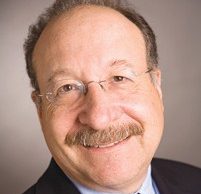Santa Barbara County Supervisor Peter Adam and Santa Barbara Mayor Helene Schneider are an unlikely political pairing.
She’s a liberal from the South Coast and a stalwart of the political establishment. He’s an upstart conservative from the Santa Maria Valley who unseated incumbent Joni Gray.
But these days, both are stepping out of character — you just might call them the odd couple of tri-county politics. And that’s more proof that there are no magical solutions for the looming fiscal problems facing local governments.
Free-market thinker Adam, for example, has become a bit of an income redistributionist. He’s mounted an uphill charge to fund millions of dollars in deferred maintenance for county roads, building maintenance and other capital projects. To do so, he’s proposed taking money that has gone to enriching an entitled class of public officials and instead putting millions toward projects that benefit the working class. Adam wants to curb pay and pensions for civil servants and use the money to build roads and repair stuff that ordinary citizens need. That means jobs for construction workers, many of them Latino, who were among the hardest hit by the recession. At another time that might have been called New Deal politics, but now it is just common sense.
Meanwhile, Schneider is staring at a shortfall in capital projects amounting to more than $350 million. In a few years, more than half the money that Santa Barbara spends compensating police and firefighters will go toward pensions. Her solution is in part good-old-fashioned deregulation. She wants to expedite the process for private-property owners getting permits for improvements, in part by rewriting the city’s 1950s-era rules for development. “We’ve gotten the message that time is money when it comes to building projects,” she said at the State of the City breakfast on March 24.
The bottom line is that banking sector and much of the private sector have put the Great Recession behind them. But the lingering impacts of the recession on local government remain. One solution is to lighten the burden of soft-dollar pensions and make infrastructure investments. Another is to speed the flow of projects to market and grow the future tax revenue stream.
It’s hard to miss the irony in painting Supervisor Adam as a neo-liberal and Schneider as a Reaganite deregulator. But the fact is that they are both innovators — and that should be applauded.






 Print
Print Email
Email

















